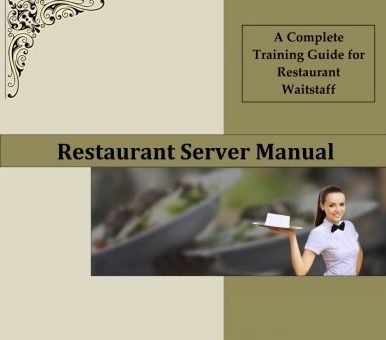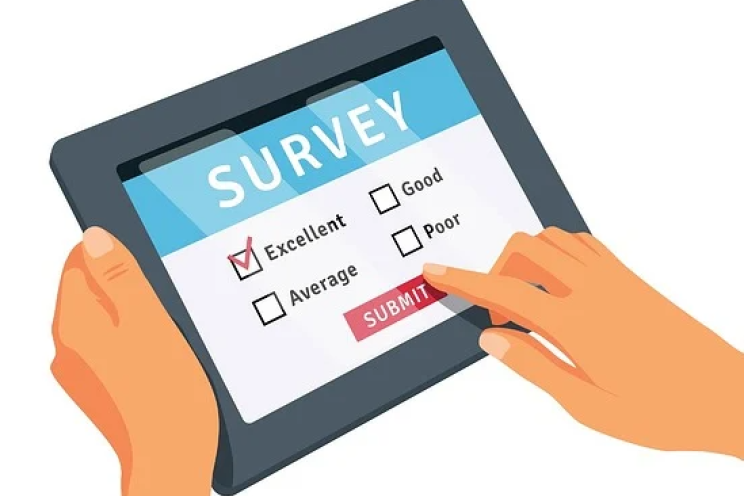
How to create an effective restaurant training manual?
Finding employees in the hospitality sector is an arduous task for restaurateurs. You need an employee who is committed to you and at the same time to be competent. But without a structured and clear guidelines on employees’ responsibilities for each position, employees will be lost with their duties and tasks would overlap creating operational issues.
Training has the utmost value that enhances employee productivity and performance.
Even when you hire experienced employees, training remains essential for their performance to make them familiar with your restaurant specifics.
For this purpose, restaurateurs escort to restaurant training manual that gives clear guidelines for newcomers and remains a companion for existing employees to understand the core of their responsibilities.
What is a restaurant training manual?
The restaurant training manual acts as a source of guidelines that explain the rules for working at your restaurant. It includes key information about different positions’ procedures, different policies and processes and the how to.
It creates the basis for employee behaviors that lead to a consistent dining experience regardless of the location or personnel.
It gives a consistent training and execution throughout different positions for new hires and even existing staff.
Why to use a restaurant training manual?
You might think to yourself that you don’t need a manual for training employees. You’ve done it several times and in different ways.
But can you imagine how convenient and practical is to acquire a manual that explains it all especially with the hustle of your daily issues and operations?
Using a training manual have many benefits.
Motivating staff
Your team is working with a lifted spirit toward main goal that serves at the company progress and well-being by setting the standards for work requirements.
Creating a positive work environment
Explaining employee roles and responsibilities in addition to sharing your vision and plans with them makes them feel valuable and important which creates a positive attitude and a healthy work environment.
Reducing turnover
Why wouldn’t be more committed to you if you show them more appreciation of their roles and if you’re working on improving their skills? Your staff feels more trusted and hence less likely to leave you
Increasing job satisfaction
Providing clear rules and guidelines to your employees reduces errors and concerns that your employees might have and hence increases their confidence and satisfaction.
How to create a restaurant training manual?
The foundation includes the cover page, table of contents, history, core values, vision and mission statement that are written in the introduction.
The cover page: it includes your branding elements such as logo, name and address. It should contain your contact details as well.
The table of content might include:
-
Introduction
-
General guidelines
-
Training
-
Roles & Responsibilities
-
Role procedures
-
Dress code
-
Technology
-
Health, Safety & Sanitization
-
Conclusion
The introduction:
-
A welcome section with a personalized note or message to all employees expressing appreciation.
-
History that explains your background and all the milestones that you went through to be who you are in the present.
-
Core values that enable you to maintain your brand image more effectively since all employees will be working with the same values
-
Vision that focuses on your future goals and what you want to be.
-
Mission statement that focuses on today’s requirements to achieve your vision.
-
Guest overview that explains your typical guests and how to increase their satisfaction in addition to the experience your restaurant is striving to create including behavior and communication guidelines and guests’ interactions.
The part related to the training itself and it should include:
-
Training schedule and length
-
Company expectations that include the end goal of the training and success measurements and the required obtained skills.
-
Detailed role functions and responsibilities including each department role using a conversational language
-
Dress code that explains their physical appearance expectations.
-
Health and sanitization procedures that include handling guest allergies, dietary restrictions and medical emergencies at your restaurant. The sanitization includes the proper measurements and guidelines to handle food to ensure safety for all parties including handwashing, dishwashing and food storage.
-
Role procedures that include specific and detailed checkpoints for opening and closing providing information about handling finances, cleaning, restocking, prepping utensils and other related issues.
-
Specific servers’ responsibilities might include guest welcoming, handing food to customers, arrangements between kitchen staff and waiters, table check-ins, order taking process and cleaning the table.
-
Specific kitchen staff responsibilities include station prepping, prioritizing orders, meal prepping and food handling.
Technology that includes explanation on how to use POS systems with a tutorial including kitchen management system, customer relation management and accounting.
Training impacts the performance of your restaurant and the overall wellbeing of your business and creating a consistent tool that clarifies and standardizes all the guidelines is a tremendous step toward maintaining your brand image.





